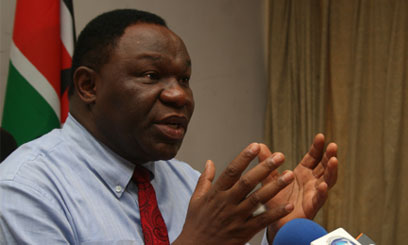NAIROBI, Kenya, Sep 14 – The Ministry of Information is advising mobile operators not to raise their tariffs by more than Sh2 as they look to cover growing operational costs.
Ministry of Information Permanent Secretary Dr Bitange Ndemo says operators risk losing customers if they hike their prices too high as they have already become accustomed to the low rates they currently enjoy.
The PS says in light of a weakening shilling and rising international oil prices, mobile operators are under immense pressure to maintain their margins and so he expects them to adjust their tariffs albeit marginally.
“I don’t think anyone of them would go above that (Sh2) because they also have to consider their customers who have already enjoyed the low rates,” Dr Ndemo said.
“If the shilling remained constant then there would be no problem but now their costs have gone up so would you rather them collapse or what do you do?” he posed.
Safaricom CEO Bob Collymore on Friday kicked off the debate during the firm’s Annual General Meeting citing a “hostile” business environment.
“The cost of running a network is coming up. So I wouldn’t be surprised if the higher costs ultimately lead into higher retail prices at some point,” Collymore told shareholders.
Vicious price wars in the sector have seen call rates came down by more than 50 percent in August last year after Safaricom’s rival, Airtel, halved its call rates to Sh3 with the drop in Mobile Termination Rates (the fee that telecoms operators charge each other for calls terminated on their rivals’ network) to Sh2.21 from Sh4.42.
Essar Telecom’s yu has even gone as far as introducing free on-net calls for its customers.
Dr Ndemo said that stability has to be restored in the market to ensure both customer and operator interests are looked after.
“The price will continue to come down in the future but there must be stability in the market which is currently being threatened by the current shocks,” he said adding that ministry does not control prices in the industry.



































